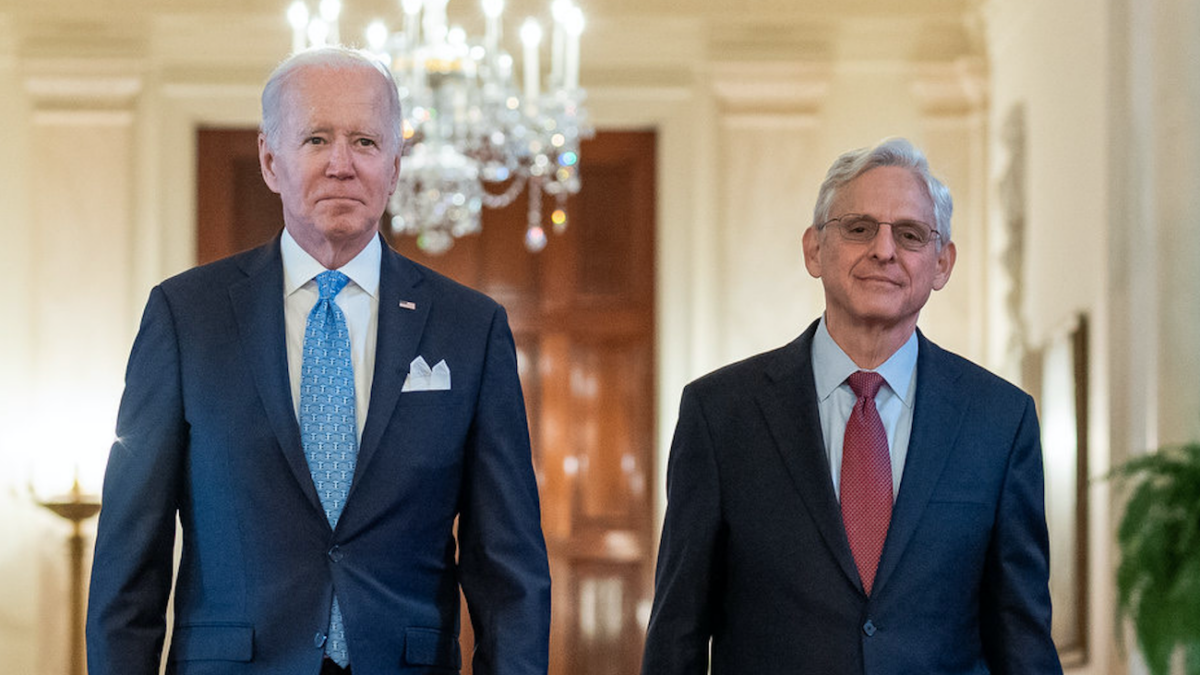A federal judge in Alabama quashed the invasive subpoena the Biden administration served on the conservative Eagle Forum and Southeast Law Institute, holding the material sought from the nonprofits fell outside the scope of discovery relevant to the Department of Justice’s lawsuit challenging Alabama’s law banning chemical and surgical transgender experimentation on minors. Monday’s victory proves Americans can fight back against the Biden administration’s weaponizing of the DOJ.
The Department of Justice had subpoenaed the Eagle Forum and Southeast Law Institute in August, demanding all materials related to the nonprofits’ support of the Alabama Vulnerable Child Compassion and Protection Act (VCAP). Alabama Gov. Kay Ivey had signed VCAP into law on April 8, 2022, with the legislation banning puberty blockers, wrong-sex hormones, or surgical procedures performed on minors “if the practice is performed for the purpose of attempting to alter the appearance of or affirm the minor’s perception of his or her gender or sex, if that appearance or perception is inconsistent with the minor’s sex.”
Less than two weeks later, in Eknes-Tucker v. Marshall, four transgender-identifying children, their parents, and several others sued the governor of Alabama and other state officials, challenging the constitutionality of VCAP. The plaintiffs in the Eknes-Tucker case argued that VCAP violates the constitutional right of parents to obtain medical treatment for their children and the equal-protection rights of transgender minors. The Biden administration quickly joined the lawsuit as a plaintiff, asserting the same equal-protection argument as the children.
In May, federal Judge Liles Burke, a Donald Trump appointee, granted the plaintiffs a preliminary injunction, keeping the statute from going into effect pending resolution of the case. Alabama appealed the court’s injunction to the 11th Circuit Court of Appeals, and a hearing is tentatively scheduled for Nov. 14, 2022.
In the meantime, however, the Department of Justice moved forward with discovery, serving at least two nonprofit groups, the Eagle Forum and the Southeast Law Institute, with invasive subpoenas demanding that the organizations provide the federal government with documents related to their efforts to push for passage of the VCAP, including communications with their members and state legislators. In total, the Biden administration sought 11 broad categories of material, spanning from Jan. 1, 2017, through the present day.
The Eagle Forum and the Southeast Law Institute — neither of which were parties to the lawsuit — filed motions to quash the DOJ’s subpoenas, arguing that none of the requested material was relevant to the question of the constitutionality of the VCAP, that subpoenas infringe on their First Amendment rights, and that compliance with the subpoenas would be unduly burdensome to the nonprofit organizations, which lack the staff and resources necessary to pull the requested documents.
On Monday, Judge Burke — the same judge who had enjoined enforcement of the statute — granted the motions to quash, finding the requested information outside the scoop of discovery.
“The subpoenas command Eagle Forum and Southeast Law Institute to produce eleven broad categories of evidence, ranging from draft legislation, to communications with the Alabama Legislature, to polling or public opinion data, to social media postings,” the court wrote. But “these materials are unlikely to reveal or lead to any information that would help resolve the fundamental issue in this case,” which is the constitutionality of Alabama’s VCAP, the court stressed. Thus, “the requested material has little — if any — relevance for purposes of discovery,” Burke concluded. And the burden to the nonprofits, the court held, far outweighed any slight relevance possible.
While the court could have left the matter there, Burke instead chastised the DOJ for submitting “overly broad and unduly burdensome” subpoenas, which the government then sought to “narrow” a week before the scheduled hearing on the Eagle Forum and Southeast Law Institute’s fully briefed motion to quash. And after putting the nonprofits under the burden of fighting the original subpoenas, the DOJ claimed it now only sought “any medical studies or literature referenced in” the act’s legislative findings. That request, however, was outside the scope of the original subpoenas, so the court quashed the subpoenas in total.
The Eagle Forum celebrated this week’s victory in a press release that perfectly captured the significance of the case. “Eagle Forum’s triumph today is a victory for freedom of speech for all Americans who wish to be a part of the democratic process,” the nonprofit wrote.
Kristen A. Ullman, president of Eagle Forum, also highlighted what the Biden administration had done, noting that the “DOJ ardently fought to harass a volunteer group of concerned citizens.” Ullman further cautioned the DOJ to “take their loss today as a reminder they have awakened a sleeping giant” — something clear from the fact that, as the court detailed in its opinion, it had received friend-of-the-court briefs from the Free Speech Coalition; 53 organizations, federal and state legislators, and individual citizens; the National Republican Redistricting Trust; and the Tea Party Patriots Action, Inc.
Given the systemic weaponization of the DOJ under the Biden administration, however, it seems unlikely Monday’s decisive loss will stop the abuse of power, but the Eagle Forum and Southeast Law Institute’s victory is proof the battle can be won.









